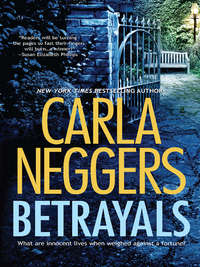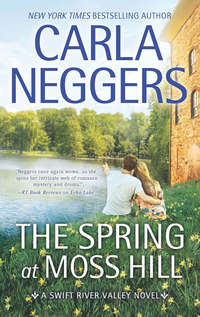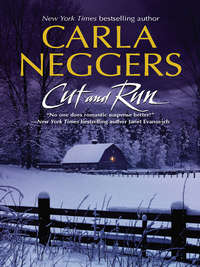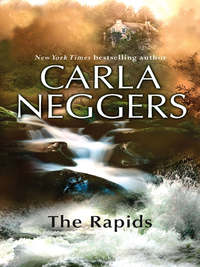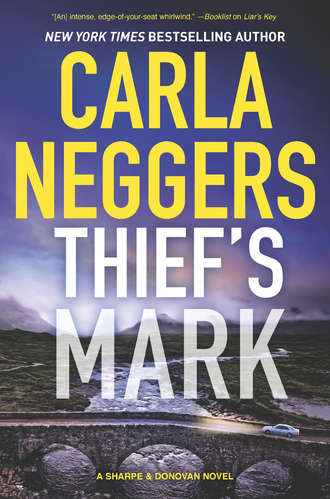
Полная версия
Thief's Mark
Any thought of a relationship with him was delusional.
For all his quirks and misdeeds, however, Henrietta couldn’t see Oliver as a murderer.
She rummaged in a near-empty bag for two slices of bread. Tea and a cheese-and-pickle sandwich weren’t a pint but they were what she needed right now. She’d reorganized the kitchen a few weeks ago to suit her. Slowly but surely, she was making the house her own. It needed remodeling but that would come in due course. She’d been focused on establishing her garden-design business.
She was slathering on Branston pickles when her phone vibrated on the table. She swooped it up and sighed when she saw it was Martin Hambly. She’d wanted it to be...who? Oliver? MI5? It didn’t bear considering.
She answered. “Hello, Martin,” she said.
“How are you doing?”
It wasn’t why he’d called. She could hear it in his voice. “I’m fine, thank you.”
“Good.”
She frowned, on her feet, silent phone at her ear. “Has something happened?” she asked finally.
“No, no—sorry. I’m distracted. Two FBI agents are on the way. The police want us to talk to them.”
Now this was interesting. “Are these Oliver’s FBI-agent friends?”
“Emma Sharpe and Colin Donovan, yes, but ‘friends’ is perhaps too strong. I didn’t realize you knew about them.”
“Everyone in the village knows about them, Martin.”
“I see.” He sounded resigned to the fact, if not pleased. “They might be able to help us find Oliver. They arrived at Heathrow this morning.”
“Excellent. I can show them our vintage flowerpot.”
“Henrietta?”
“Sorry. No problem. I’ll have a bite and be along.”
“Thank you. I’ll let them know when they arrive.”
She rang off, finding herself torn between wanting to meddle in the death investigation and wanting to grab sheers and prune something—anything—in Aunt Posey’s garden.
Classic fight-or-flight.
She finished making her lunch and took it outside to the terrace. She settled at a metal table and chairs. They’d been Posey’s. Henrietta hadn’t had a garden in London. There were cushions, but she was always forgetting to take them in when it rained, or out when it didn’t rain. The seat wasn’t as cold as it had been that morning, when she’d had breakfast outdoors, before leaving for the York farm.
She tried to focus on a clump of cheerful Shasta daisies. Posey had been a master gardener and might have raised her eyebrows at Henrietta calling herself a garden designer. On her many visits since childhood, she’d soaked up her great-aunt’s gardening wisdom and expertise. On all matters, not just her house, Posey had preferred to consider only her own opinions. She’d inherited enough money from her parents to get by if she lived frugally—which came naturally to her—and had supplemented her income with the occasional magazine and newspaper article on gardening. As opinionated as she was, Posey had been relatively open-minded when it came to gardening. She had a simple philosophy: “Plant what you like where it will grow.” Everything else, she said, would follow and sort itself.
Henrietta ate her sandwich, hardly noticing its taste. Her plans for the day had been thoroughly messed up. She was in no hurry to meet with the FBI agents. Would they know she was ex-MI5? She was certain Martin suspected that she’d been sent by MI5, perhaps, to keep an eye on Oliver. The truth was considerably more complicated.
Well, not that much more complicated. She’d quit MI5 in March, moved to the Cotswolds and put out her shingle as a garden designer. Half her former colleagues believed she’d been sacked, but it wasn’t true, at least technically. One day she’d realized she’d had her fill and put in her papers. The “one day” had followed a bad run-in with a senior intelligence officer and a seriously inexplicable longing to call Oliver and talk to him about it. She’d realized she needed to move on.
“Focus,” she said aloud. “Don’t let your mind wander.”
Her new job was enhanced by a wandering mind. It gave her something to do while finding old flowerpots as she had that morning.
She poured more tea, taking care to note its heat, its scent, its splash in her cup. She found the ritual reassuring, a way to stay fully present and to step out of the whirlwind of the dead man at the York farm and Oliver’s disappearance.
She drank a few more sips of tea and gave up. Her mind wasn’t on tea or flowers. She was can-do by nature, and she wanted to pace, jump up, do something—clean, wash, throw things, anything that wasn’t sitting, keeping her cool. She’d been cool and decisive that morning but that was different. That was real. It wasn’t debating whether to have biscuits with her tea or to wander in the garden.
The humidity was building ahead of the rain. It worked its dark magic and frizzed up her hair. She could feel it.
She pounced when her phone vibrated next to her. “Hello—”
“Tell the FBI agents everything. They know who you are. I told them.”
“And you are?”
But the man on the other end of the connection was gone. It didn’t matter. She knew who it was. MI5, in the form of Jeremy Pearson. The same uncompromising senior officer who’d given her such a hard time in March.
Now it was time to wander in Aunt Posey’s gardens.
* * *
“Henrietta!” Cassie Kershaw, who owned the original Balfour farm with her husband, waved by the iron gate in the stone wall that divided their two properties. “Are you all right? I just heard what happened.”
“Hang on,” Henrietta said. “I’ll come to you.”
She extricated herself from examining a crumbling rose trellis and took a well-trodden footpath through the back gate. Cassie stepped aside, tucking strands of her fine, pale hair behind her ear as if to help calm herself. “My God, Henrietta, what a day. Are you all right? Did you just get back from the York farm? I’ve been worried about you.”
“I’m fine,” Henrietta said. “I wasn’t hurt. I spoke with the police and came back here for lunch. You’ve probably heard more details than I have.”
“Gossip, not details.”
Gossip about an unexplained, bloody death was inevitable, but Henrietta had discovered that people in Oliver’s small Cotswold village seldom gossiped about his family tragedy. She didn’t believe they considered it a forbidden subject as much as one well in the past and none of their business. Oliver had been on his own since the back-to-back deaths of his grandparents when he was in his late teens. Henrietta had accompanied Posey to their funerals. She remembered how sad and yet self-contained he’d looked at the cemetery service, the wind catching his tawny hair as he’d stood in front of his parents’ graves. He’d kissed her cheek and told her he was glad she was there, but it had felt mechanical and rote, an upper-class young man remembering his manners. He’d promptly dropped out of Oxford, dividing his time between London and the farm—and eventually his illicit travels to steal art.
In the years since, he could play the dashing, aristocratic Englishman when it suited him, but for the most part he’d kept to himself, particularly when he was at his farm. Henrietta had never been under the impression villagers judged him for his solitary ways. They left him alone, since it was what he wanted.
Or had wanted. Bit by bit since last fall, he’d been lifting himself out of his self-imposed isolation, venturing to the pub, having visitors, now that his secret career as an art thief had come to an end.
Something, of course, Henrietta couldn’t discuss with Cassie or anyone else in the village. “There’s not much I can tell you,” she said.
“You walked home?”
“I didn’t have my car. Someone would have dropped me home, but it felt good to walk after such an intense couple of hours.”
“What a fright. Just awful.”
Henrietta noticed a pair of bright pink work gloves in a wheelbarrow next to a compost bin off to Cassie’s right. She looked in her element, dressed in a baggy flannel shirt, baggy jeans and muddy Wellies. She was American, but she and Henrietta were related through a circuitous connection to the Balfours. Henrietta had introduced her to Eugene Kershaw, an unhappy Oxford solicitor now a deliriously happy farmer. He and Cassie were the parents of two young boys. Eugene’s grandparents had purchased the Balfour farm from Henrietta’s father shortly after her grandfather’s death. It’d been their dream to own a Cotswold farm, but they’d never managed to make much of a go of it. Eugene’s parents were Oxford professors and had no interest in taking on a thriving farm, much less a struggling one.
By the time Eugene and Cassie took over, the property had been seriously neglected and getting it back in shape was proving to be considerably more work at far more expense than either had anticipated. The risk and effort were paying off, and now they were drawing a sufficient income that allowed Eugene to quit his outside work. Both he and Cassie worked at the farm full-time. Henrietta had never heard them complain about the vagaries of farm life. They’d helped spread the word about her garden-design business when she’d made her career change. This was the life Cassie and Eugene wanted to live, how they wanted to raise their sons.
“I’ve been in the compost pile, as you can see,” Cassie said. “Eugene and the boys love mucking about in compost more than I do, but it does feel good to work up a sweat. We only just heard about the mishap out at the York farm. The police came round to ask if we’d seen anyone about. We hadn’t, of course. The death—It was a mishap, wasn’t it?”
“I honestly don’t know,” Henrietta said truthfully. “I’m still trying to absorb everything.”
“But you’re not one to panic,” Cassie observed, making it sound almost like a criticism.
“Dealing with plants will do that.” Henrietta left it there. She wasn’t accustomed to family and friends living close by, seeing people she’d known for years—since childhood, in many cases—on a regular basis. She’d maintained a very different existence in London. “One imagines all sorts of dramatic scenarios to cope with the parts of the work that are pure drudgery. Plucking weeds gets boring after thirty seconds. I’ve imagined myself in so many dangerous situations, it was second nature to deal with a real one.” None of which was an outright lie. “I had Martin’s example. The man is unflappable.”
Cassie relaxed slightly. “I can imagine. He strikes me as the epitome of ‘keep calm and carry on.’ Do you know the man who was killed?”
Henrietta shook her head. “I never saw him before that I can recall. If the police know, they haven’t told me. Where’s Eugene?”
“He’s just back from the post office. I think he’s in the cottage we’re renovating. I’ve been so distracted since the police were here. They were gracious and professional, but you know how it is.” Cassie stopped abruptly and pointed at Henrietta’s forearm. “Is that blood?”
Henrietta glanced at her sleeve. It was blood, indeed. She hadn’t noticed until now. Neither Martin nor the police had mentioned it, but she’d had on her jacket. She must have got blood on her sleeve when she’d checked the dead man’s pulse. She lowered her arm, discreetly angling the blood smear from Cassie’s view. “Martin and I tried to help, but we were too late. There was nothing we could do.”
“How dreadful. Maybe you should have stayed in the potting shed with the housekeeper.”
“How did you know about Ruthie?”
Henrietta winced at her quick question—her MI5 past bubbling up—but Cassie didn’t seem to notice. “Nigel Burns,” she said.
Nigel was the older of Ruthie’s two adult sons, a mechanic who often worked on the equipment at the York farm. Lately he was helping renovate a traditional stone-and-timber cottage on the Kershaw farm. It predated the farmhouse. At one point, Posey had considered it for her home, but Henrietta doubted that thought had lasted long. The low ceilings alone would have done in Posey. The cottage was located just down the stone wall, amid trees that bordered a stream and a field, green with spring grass. Cassie’s parents planned to retire later in the year and move into the renovated cottage.
“Ruthie did well today,” Henrietta said. “She’s old-fashioned, dedicated, a thorn in Martin’s side and part of the furnishings as far as Oliver’s concerned, but she’s reliable. I appreciate her—I promise you I do—but if I ever get as proprietary about gardens as she does about muddy footprints and spots on water glasses, I expect you to elbow me in the ribs.”
Cassie nodded warmly, some color returning to her cheeks. “Consider it done.”
“Today wasn’t easy for her,” Henrietta added guiltily.
“I’m sure it wasn’t. You’re gaining quite a reputation throughout the Cotswolds, you know.”
“A reputation for what?”
“Garden design and a cheerful demeanor.”
Henrietta sighed. “A cheerful Henrietta Balfour. That would shock some people.”
“Life among flowers and winding paths will do that even to a jaded Londoner like yourself.” Cassie paused, studying her friend. They’d known each other for almost a decade but they’d never really spent much time together. “I’m glad you found a career that suits you, but you don’t fool me, Henrietta. You’re bored. The pace of a garden designer and a Cotswold life is different from what you were used to in London.”
“True enough.”
And more so than Cassie knew or likely would ever know, but Henrietta couldn’t explain she’d entered Her Majesty’s Security Service fresh out of university, trained and worked as an operator in the field, specializing in surveillance, and then moved up the ranks to an office in Thames House. There’d never been any job in a London financial office. She was happy not to explain, either. Best to put those years behind her.
“I’m a Balfour, Cassie. Gardening’s in the blood.” So was MI5, but Henrietta kept that point to herself. “Bored or not, I could do without what happened today. My only interest at the York farm involves annuals, perennials, herbaceous borders—”
“You can stop there,” Cassie said with a welcome laugh. “I definitely do not have the Balfour gardening gene. Eugene and I are amazed at the landscaping here, though. It’s perfect for us to build on. People say your grandfather puttered in the flowerbeds after he left MI5, right up until his death. That’s heartening somehow. He’d have been proud of you today, don’t you think?”
“I hope so.”
The lighthearted moment dissipated and Cassie turned serious again. “And Oliver York? Did he really take off?”
“I only saw him at the dovecote,” Henrietta said. “He left a short while before Martin and I found the body.”
“Just awful. Truly. Eugene and I ran into Oliver at the pub last week. He was on his own but he sat at the bar and chatted with people. He doesn’t mingle often. We tend to notice when he does. He’s quite the character, isn’t he? Good-looking and a bit mysterious.”
Henrietta pushed up her sleeves, hiding the blood. “I haven’t really thought about it,” she said casually.
“Haven’t you?” Cassie reached for her gloves. “You don’t have to answer. It’ll keep. This isn’t the time to discuss such things. I know you’re intrepid and all that, but finding a dead man must be a shock. Do you have any idea what happened...how this man died? It had to be an accident, however terrible, don’t you think? He didn’t attack Oliver, did he? Oliver didn’t kill him in self-defense?”
“I don’t know any more than you do, Cassie. The police told me best to leave the investigation to them and get back to my plans for the day.”
Cassie stared at the worn gloves, bits of compost debris and dirt stuck to the fingers. “Can you at least tell me if they suspect murder? I have two small boys...”
“The police haven’t said.”
“I’ve been trying not to freak out. Eugene says even if it was murder, it’s got nothing to do with us. We aren’t targets. We always keep an eye on the boys. Still, I’m keeping them close to home until we hear more. My parents don’t know yet. They’re so looking forward to retiring to the peaceful Cotswolds. If this man’s death was murder...” Cassie shook her head. “No. I’m not going to think that way. It’s a York thing, whatever it is, and nothing to do with us.” She frowned, cocking her head to one side. “Are you sure you’re all right, Henrietta? How can you be so calm?”
“I’m afraid I’m still in shock.” She licked her lips. “I’m sure it will hit me later.”
“Yes. I imagine so. Be careful, won’t you? And come to dinner tonight. You won’t want to be alone.”
Actually, Henrietta did want to be alone. She couldn’t imagine being sociable after today, but Cassie and Eugene loved to entertain. Henrietta had invited them over for wine and olives on the terrace one evening but had whisked them to the pub for dinner. She knew how to cook. She just didn’t like to.
“Don’t forget we can provide you all the compost you can use,” Cassie said, then sputtered into laughter. “For gardens, I mean, not for dinner.”
Henrietta managed a smile. “Thank you.”
Cassie grabbed her garden gloves. “I found a painting in the cottage the other day. It was tucked in the back of a small closet that I doubt had been opened in years. I’ve been meaning to ask you about it. I’ll show you at dinner. It’ll be a pleasant diversion after this morning.”
Henrietta was in no hurry to return to the York farm and chat with the FBI. “Why don’t I take a look now?”
* * *
As they reached the cottage, Tony Balfour came out the front door. Cassie jumped—she was in easy-to-startle mode—but Henrietta was pleased to see him. He was her father’s first cousin, the only child of Freddy and Posey’s middle sibling, Anthony, who’d died tragically when Tony was a baby. He’d retired in April after a career as a landscaper at various public gardens throughout England. He was living in the Kershaw cottage temporarily, in exchange for overseeing the renovations, a perfect arrangement as he figured out what was next for him. Henrietta suspected gardening was perhaps a stronger Balfour family tradition than intelligence work. Divorced with no children, he hadn’t decided where to settle in retirement. He was in excellent shape and still muscular from decades of physical work, but he was clearly ready to go at his own pace and do other things.
“Henrietta, love,” Tony said, taking her by the hand and kissing her on the cheek. He was dressed in his work clothes, and she could smell plaster dust on him but saw no sign of it on his gray, paint-stained hoody. He stood back. “I heard the news. What on earth happened?”
“It wasn’t the morning I had in mind, but I’ve rallied.”
“Thank heavens you weren’t hurt. You weren’t, were you?”
“Not at all. No one was, except the man who died.”
Tony nodded, his expression a mix of grimness and curiosity. “We’ve lived quiet lives compared to Oliver York, haven’t we?”
“Henrietta’s going to take a look at the painting we discovered,” Cassie said.
“Great idea. It’s priceless in its own way. I’m sorry I’m in a rush. I need to pick up a few things at the hardware store.” He shifted again to Henrietta. “Phone me if the adrenaline wears off and you want to talk. Once a worker cut his arm and the resulting mess...” He made a face and held up a hand. “Never mind. It wasn’t a fatal accident but you don’t need to have that picture dancing around in your head.”
“I imagine not,” Henrietta said. “Thank you.”
“I’ll see you later, then.”
He headed up the path toward the Kershaw house. Henrietta had never seen anyone quite so happy to retire. Tony heartily approved of her career change and had assured her Posey would have, too. Of course, he believed she’d worked in a dull London office job.
Henrietta followed Casey into the cottage. The front room was cleared of any furniture while the plastering was being redone. Tony did most of the work, but he’d bring in professionals when needed or grab Nigel Burns or Eugene for easier jobs that needed more than one pair of hands. Since the cottage had once belonged to the Balfours, Henrietta was madly curious about the renovations but tried not to be too nosy.
Eugene emerged from the kitchen. “I was just in the village,” he said. “Everyone’s shocked at the news of the death at the York farm. I suppose it’s natural for our minds to jump to violence rather than an unfortunate accident. Oliver bolting doesn’t help, but one can understand why he might, under the circumstances. After what he went through as a boy, who wouldn’t?”
“Best to let the police sort this, Eugene,” Henrietta said.
“Yes, of course. You’re right.” He smiled. “You’re sensible like your aunt, Henrietta.”
“Posey was thrilled when you decided to take on the farm.”
“A late bloomer, I believe she called me.”
Eugene was nine years older than Cassie, a bit grayer and balder these days but in good shape from his farm work and as amiable as ever. He and Cassie had clicked the moment Henrietta had introduced them to each other, the only instance she’d successfully played matchmaker—not that she’d meant to play matchmaker. It was an accident, really. She’d looked up Cassie on a trip to Boston given their family connection, and they’d hit it off. Cassie had come to the Cotswolds to visit and Henrietta had shown her out to the old Balfour farm. Eugene had been there, cutting the grass after work. They’d ended up at the pub together and eight months later, Cassie and Eugene were married at the village church.
Henrietta had known Eugene since her visits with her aunt as a child. Her parents would drop her off in the Cotswolds for weeks while they binged on opera or scooted to Paris without her. Eugene and his younger sister, who now ran a restaurant in Oxford, had spent holidays with their grandparents on the former Balfour farm. For as far back as Henrietta could remember, Eugene had expressed his desire to revive the farm. He’d loved to talk about horses, Cotswold sheep, dairy cows and grain fields. Henrietta couldn’t say it’d ever been her ambition to move into Aunt Posey’s house full-time, but she did love the place. It had seemed like a practical, workable option when she’d quit MI5. Flowers, herbs, shrubs, pots, cutting and watering regimes. Simpler than uncovering schemes to commit mass murder.
She turned her attention to the matter at hand. “Well, what do we have?”
Cassie went into the kitchen and came out with a mounted canvas. She set it on the floor and leaned it against the wall, standing aside so that Henrietta could see it was an oil painting of a scene of a mountain and a lake. It wasn’t in the class of paintings Oliver York had stolen, but it was charming.
“It’s wonderful, isn’t it?” Cassie beamed. “A bit amateurish, I know, but I love its sensibility. It’s Queen’s View in the southern Scottish Highlands. It’s supposedly named for Queen Victoria, after she visited in 1866. I looked it up after I found the painting. That’s Loch Tummel and the Tay Forest. Eugene and I drove up there for a few days before we had children. Have you ever been, Henrietta?”
She nodded. “I went a few years ago with a churl of an ex-boyfriend.”
Cassie grinned at her. “One day I want to hear all the details of your life before you moved back here. I know so little about it.” She turned back to the painting. “It’s not signed, and there’s nothing on the back to indicate who painted it. We were wondering if you have any idea.”
“I’ve never seen it before,” Henrietta said, certain.
“Did your grandfather paint?”
“Freddy? Good heavens, no. Well, I doubt he did—I was very young when he died. My father has never mentioned Freddy painted. Posey didn’t, either, when she was alive. I remember him smoking cigarettes and rambling in the garden.”
“What about Posey?” Cassie asked. “Could she have painted it?”
“I can’t imagine she did. I never saw her paint, and I haven’t discovered any old canvases or supplies and such since I moved into her house.”
Cassie frowned. “Hmm. A mystery. Could it have been your grandmother... Freddy’s wife?”
“No one ever mentioned she painted, but I really don’t know,” Henrietta said. “I don’t remember her at all. She died when I was a baby. A shame you didn’t find it when Posey was still alive. Does Tony have any memory of it?”






